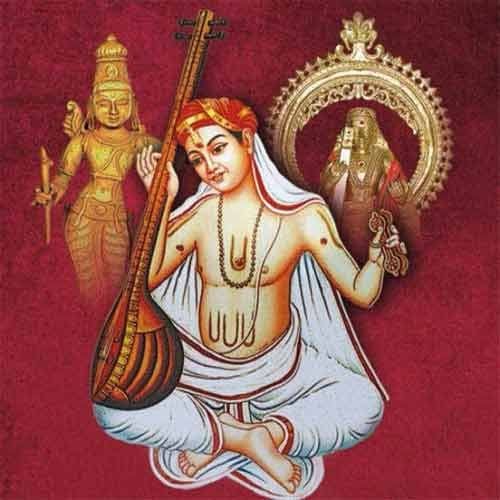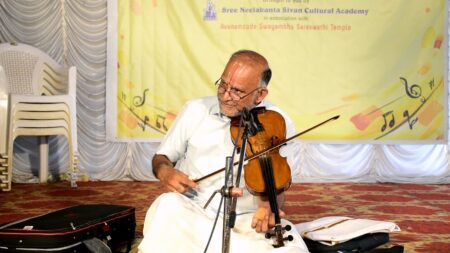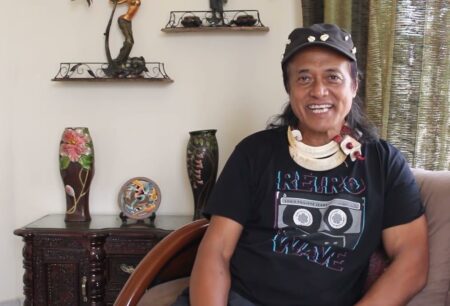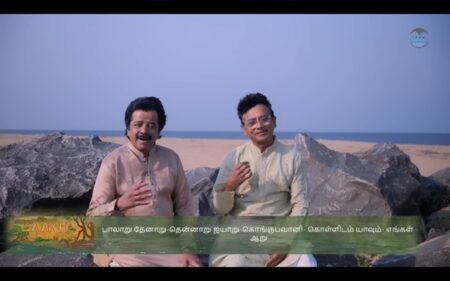Is the taste for music inherent or cultivated? The writer tries to analyze the understanding and definition of music.
Let’s start with a question: Is music something to be understood at all? Music is an art expressed through the medium of sound. Or that is what everybody thought till a certain gentleman answering to the name of Ludwig van Beethoven changed our thinking. Beethoven started losing his hearing even before he turned 30 and is said to have lived the last decade of his life totally deaf. Yet, experts believe that the best works he created were from this period.
Now, back to the question whether music can be understood – well, to understand music, we must first define it. Not easy as it sounds but not surprising either, considering music preceded spoken language. The dictionary meaning of music, “The art of compression in melody, in rhythm and harmony” is too prosaic and “a complex amalgam of melody, harmony, rhythm, timbre and silence in a particular intended structure” offers only a slight improvement. Greek and Indian philosophers defined music as “tones ordered horizontally as melodies and vertically as harmonies”. We are nowhere closer. The difficulty is in trying to put in words to something we feel – a sensation that goes beyond the five senses.
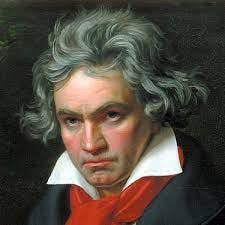
Ludwig Van Beethoven
Let’s leave geniuses and prodigies out of the equation. Though genius is often defined as 5 per cent inspiration and 95 per cent perspiration, the common man can never fathom a genius. But the more mundane souls who rely on bifocals to read and hearing-aids to listen find it very difficult to put a finger on why anyone likes music or more importantly, a particular form of music. We always like something and find reasons for it later. So, the question arises whether the taste for music is innate or cultivated.
Discovering the notes
Ancient Egyptians bestowed the honour of discovering music to one of their gods, Thoth, which Osiris, the God of rebirth, later used to “civilize” the world. An interesting choice of words but not far-fetched because surely there is refinement to contend with in music as well as in other areas of creativity.
British novelist Arthur Koestler in his 1964 book The Act of Creation talks about a three-stage progression in Humour, Science and Art. He says: “…. all patterns of creative activity are tri-valent: they can enter the service of humour, discovery, or art; and also, that as we travel across the triptych from left to right, the emotional climate changes by gradual transitions from aggressive to neutral to sympathetic and identifactory — or, to put it another way, from an absurd through an abstract to a tragic or lyric view of existence.” The logical pattern of the creative process surely transcends the tastes as well because one is after all a corollary of the other.
So, what is the refinement in taste and how does that happen? Noise to music. Low to high. Disorganized sounds to melody, rhythm and harmony! This progression happens with refinement in culture, which, in turn, brings about the change in taste. The link between a taste for classical music and cultural refinement can never be over-stated.
Taking different forms
Cultures change and so do tastes. Out of classical Western music, jazz was born; pop, rock and country Western followed, not necessarily in that order. New genres ruled the roost and classical music took back-stage though purists would still argue that, that is real music! Connoisseurs of Tchaikovsky‘s Swan Lake or Bach’s Cantata now had to contend with Neil Diamond and Led Zeppelin. The changed culture also meant that now that a new breed of listener has been created – one who would listen to Mozart as well as Cliff Richard.
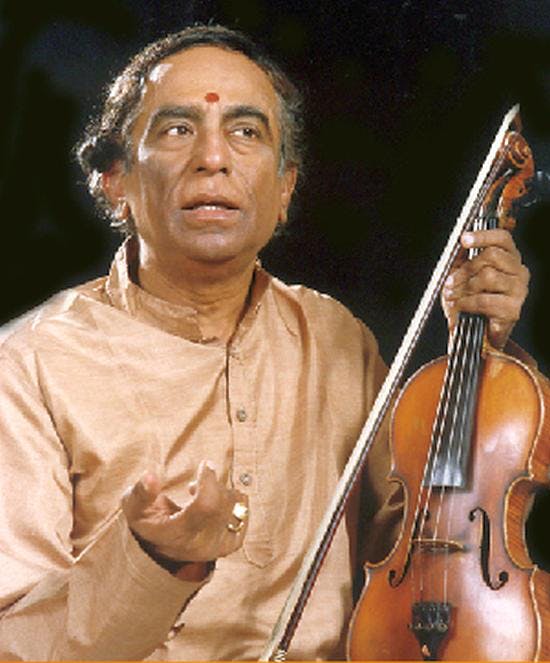
Lalgudi Jayaraman
The change of culture and the spread of Western music influenced the Indian listener as well. That meant Lalgudi Jayaraman would stare across the aisle at Yohann Strauss and Sanjay Subhramanyan would rub shoulders with Simon & Garfunkel on the shelves of a connoisseur. But the cultural change did not stop with that. The transformation continued, is continuing and now we have ear-assaulting ‘music’ pouring out of monstrous loud-speakers. It is just not just the decibel level but also the content that tortures the ears.
The advent of movies created a totally different class of music in India. The West too had music in their movies but it was no way different from what was prevalent in those days. However, in India people started calling it ‘light music.’ It’s true, initially they were ‘lighter’ versions of classical music – both Hindustani and Carnatic. Towards the 1990s, the transition into an amalgam of all sorts was rapid. The shift from tune-based music to beat-based compositions ensured that ‘popular’ noise dominated over music.
The role of culture in music
It is often said that human tolerance to noise is indirectly proportional to the level of intelligence. It is part of evolution perhaps. Even among animals, the “lowly” creatures have no responses to music while the more “evolved” ones such as dogs, cows and horses respond positively. Musicologist Jean-Jacques Nattiez avers: “The border between music and noise is always culturally defined — which implies that, even within a single society, this border does not always pass through the same place; in short, there is rarely a consensus …”
Still, nobody can dispute that culture plays a large role in appreciating music, especially classical music. The taste for classical music may be a conditional response and very rarely it is developed or acquired. French composer Edgard Varese thought that “to stubbornly conditioned ears, anything new in music has always been called noise”, and he demands, “what is music but organized noises?” Well, it is just as difficult for a die-hard ‘classicist’ to accept such noises as music as it is for the populist to accept classical music.
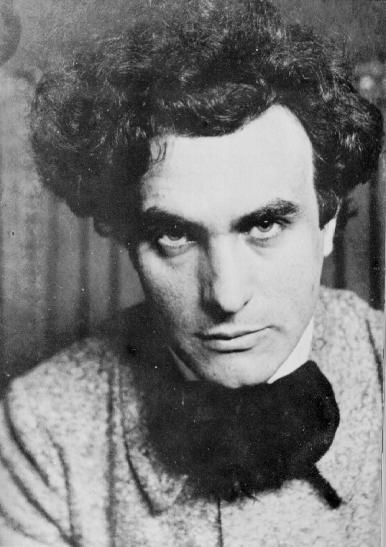
Edgard Varese
What came next was entirely a different genre of music. Rap music seemed to dominate the world. One may ask, by what stretch of imagination can this be termed music! There is nary a tune, very little rhythm and absolutely no harmony to speak of. Every song sounds alike and is a monotonous fast narration of incredible profanity, with an occasional intonation. But then millions enjoy this! Smiling they live, sing along the profane words and call rap an art!
One of Ramakrishna Paramahamsa’s parables narrates the story of a fish seller who had to take refuge in a flower garland maker’s house for the night to escape a raging storm. The fisherwoman couldn’t go to sleep because the smell of flowers seemed to annoy her until she hit upon an idea. She covered her head with the basket that she used to carry fish! And slept peacefully thereafter! Yes, tastes differ, indeed, and to each her/his own.
Featured in this article:
Lalgudi Jayaraman was a Carnatic violinist, composer and vocalist. He composed in Tamil, Telugu, Kannada and Sanskrit. The violinist was awarded Padma Shri in 1972 Padma Bhushan in 2001.
Write to us at [email protected]

